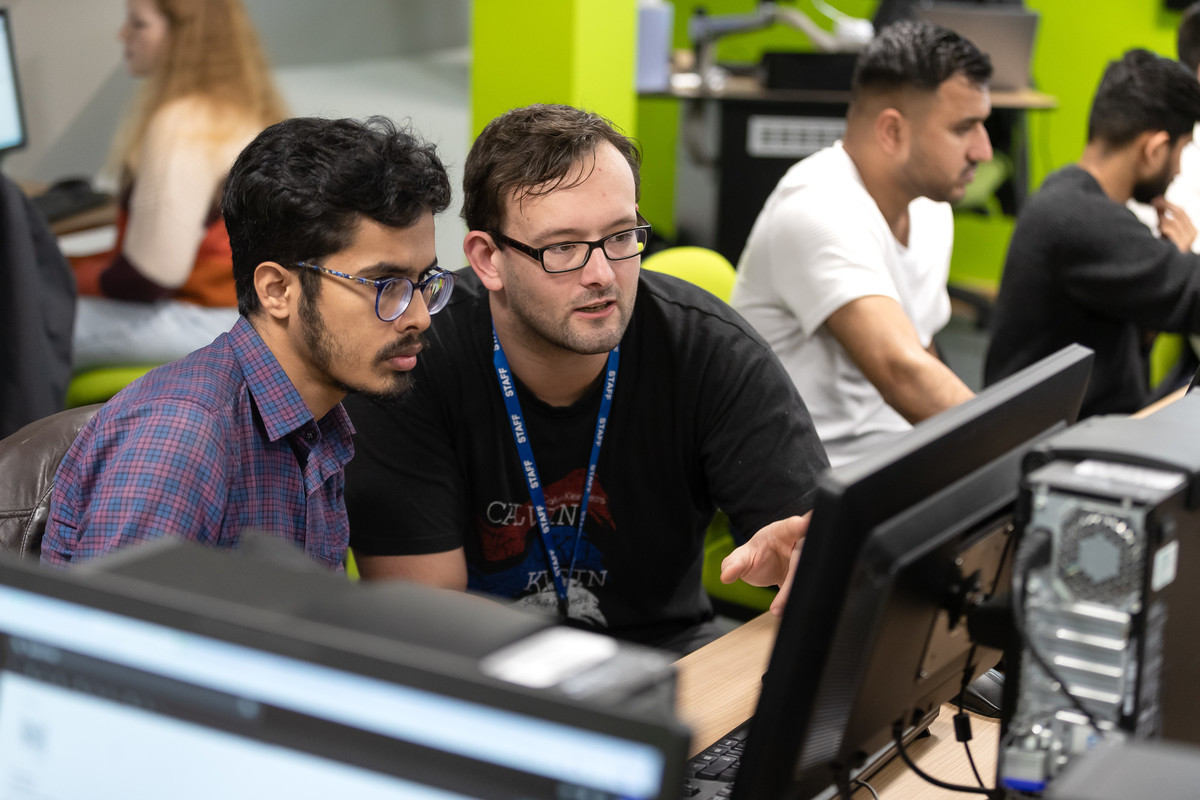Data Science (with optional Placement/Project year) MSc

You are viewing Course summary
Course Summary
This conversion Master’s degree in Data Science enables students to make the leap to the fast-growing area of data science.
The Master's degree in Data Science is designed for individuals with a technical, mathematical or engineering background who wish to enhance their skills in the field of data science. Students who have previously worked in these areas, but lack a formal degree, are also encouraged to apply to this Master's course in data science. This course is ideal for those interested in data analytics, machine learning, statistics and Python for data science.
The Data Science course is within the School of Computer and Engineering Sciences, which is a forward-thinking innovative School.
We work with employers to tailor the course to real-world needs, giving students an in-depth knowledge in the area.
The course content is cutting edge, building upon the School's expertise. This is reflected in modules such as statistical programming, machine learning, enterprise development and principles of data science.
There is an option to choose a Project/Placement year for this course, at an additional cost.
Optional 2-year Master's To Suit Your Needs
Choosing a Professional Placement MSc is a win-win for your career, giving you the chance to get real experience, apply your cutting-edge skills in the workplace and stand out to future employers.
In the first year you will have help from the University to find a placement, whilst developing your expertise. You will then spend your second year out in industry on placement, getting the chance to work with industry professionals and grow your network of industry contacts. Bringing your university-acquired knowledge and insights to industry, you will get to make a difference to the workplace and make lasting links with your employer.
Students need to find and secure their own placement, supported by the University. A preparation module will also help you to get ready for your placement.
Please note, this course is available as a one-year master degree course, or as a Two-Year Master's Course with a Professional Placement or Project. Please carefully consider your options when applying for our one year or Two-year routes as successful international applicants will not be able to change between courses after a Confirmation of Acceptance of Studies (CAS) letter has been issued or after arriving in the UK.
What You'll Study
The technical core modules cover an introduction to the subject, mathematical and statistical skills needed in data science, and more advanced techniques in machine learning and principles of data science.
You will take modules in the societal context and industry and entrepreneurial opportunities existing in the science of data.
If you choose a placement or project year, the Research Dissertation module will be replaced by a placement or project module.
The information listed in this section is an overview of the academic content of the course that will take the form of either core or option modules and should be used as a guide. We review the content of our courses regularly, making changes where necessary to improve your experience and graduate prospects. If during a review process, course content is significantly changed, we will contact you to notify you of these changes if you receive an offer from us.
If chosen, your second year of study will consist of your Project or Professional Placement
MODULES
- Professional Placement Option
- Professional Project Option
The information listed in this section is an overview of the academic content of the course that will take the form of either core or option modules and should be used as a guide. We review the content of our courses regularly, making changes where necessary to improve your experience and graduate prospects. If during a review process, course content is significantly changed, we will contact you to notify you of these changes if you receive an offer from us.
Teaching
The course uses a variety of teaching methods, including:
- Lectures
- Workshops
- Seminars
- Research
The course consists of six 20-credit modules and a 60-credit supervised research module.
Assessment
The majority of work will be assessed by coursework.
Entry Requirements
2:2 honours degree
A Bachelor's degree – 2:2 or above. However, relevant work experience will also be considered.
2:2 honours degree
A Bachelor's degree – 2:2 or above. However, relevant work experience will also be considered.
English Language Requirements
For more information on our English Language requirements, please visit International Entry Requirements.
Fees and Funding
£10,530for the full course (2025/26)
Guides to the fees for students who wish to commence postgraduate courses in the academic year 2025/26 are available to view on our Postgraduate Taught Programmes Fees page.
£15,000for a full-time course (2025/26)
The tuition fees for international students studying Postgraduate programmes in 2025/26 are £15,000.
Please note: For MSc programmes where a placement or project year is undertaken there will be an additional charge of £2,750 for the placement/project year (due at the start of the second year of the course).
The University of Chester offers generous international and merit-based scholarships for postgraduate study, providing a significant reduction to the published headline tuition fee. You will automatically be considered for these scholarships when your application is reviewed, and any award given will be stated on your offer letter.
For more information, go to our International Fees, Scholarship and Finance section.
Irish Nationals living in the UK or ROI are treated as Home students for Tuition Fee Purposes.
Your course will involve additional costs not covered by your tuition fees. This may include books, printing, photocopying, educational stationery and related materials, specialist clothing, travel to placements, optional field trips and software. Compulsory field trips are covered by your tuition fees.
Your Future Career
Job Prospects
Students will be able to pursue careers in the field of data science in a number of industry areas, including: finance, scientific research, retail, information technology, government, ecommerce and many more.
Careers service
The University has an award-winning Careers and Employability service which provides a variety of employability-enhancing experiences; through the curriculum, through employer contact, tailored group sessions, individual information, advice and guidance.
Careers and Employability aims to deliver a service which is inclusive, impartial, welcoming, informed and tailored to your personal goals and aspirations, to enable you to develop as an individual and contribute to the business and community in which you will live and work.
We are here to help you plan your future, make the most of your time at University and to enhance your employability. We provide access to part-time jobs, extra-curricular employability-enhancing workshops and offer practical one-to-one help with career planning, including help with CVs, applications and mock interviews. We also deliver group sessions on career planning within each course and we have a wide range of extensive information covering graduate jobs and postgraduate study.














